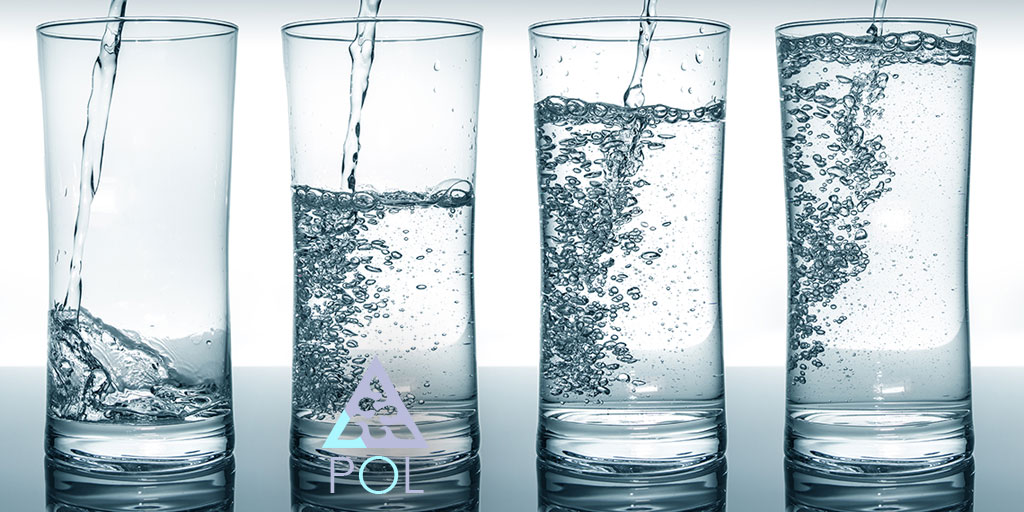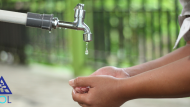Water is an essential nutrient for most of our bodily functions. Did you know that our body has no way to store water and therefore it requires a fresh supply of water each and every day? It’s true and there is a lot of information that can help you understand the critical role that water plays in your overall health.
In fact, everyone’s body requires a different amount of water depending upon your age, gender, activity level, if you are pregnant or breastfeeding, as well as many other contributing factors. Water is not a one size fits all endeavor. If you’ve been physically ill and had vomiting or diarrhea, you definitely need to get more fluids into your body than someone who is otherwise generally healthy. But it doesn’t stop there.
While you can get water from your food, it’s important to drink clean, fresh, quality water regularly every day.
Fun Facts About Water
Here are some cool things you may not have known about water and our bodies.
● Men have a higher percentage of body water than women.
● Most adults naturally lose about 5-6 pints of water per day. We lose more water in hot weather and with vigorous exercise.
● Very mature people only lose 4 to 5 pints of water per day. This could be because they’re more sedentary.
● You can lose 3 pints of water during a three-hour flight.
● When you’re slightly dehydrated, you feel thirsty. When you’re very dehydrated, you no longer feel thirsty. And that should be a warning sign.
● People get about 20% of their total water requirement from solid food. Cucumbers and lettuce are 96% water. Other great choices are celery (95% water), watermelon (92% water), strawberries (91% water), cantaloupe (90% water, and oranges (88% water). source
How Does Water Help Your Body?
One of the ways your body uses water is to regulate body temperature through sweat. When you’re dehydrated, you don’t have the ability to cool yourself down adequately. This can lead to many significant issues, including a heatstroke. Getting the proper amount of water is crucial for many reasons.
Did you know that water protects your bladder from diseases like cystitis by flushing out bacteria. It also protects your kidneys and your liver from diseases by delivering helpful materials and then taking away the waste. You see, water is needed by every cell in your body. As part of your bloodstream, it delivers oxygen and nutrients. Water lubricates your joints, and even cushions your brain, spinal cord, and other sensitive tissues.
Water Helps Digestion
Water additionally aids digestion by helping create saliva, which is made up of water, electrolytes, mucus, and enzymes. Saliva helps break down food and keep your mouth healthy. and then helps eliminate the byproducts including electrolytes as well as the other expected waste.
Water also helps protect your body by providing a moist mucous membrane in your nose, lungs, and mouth. Speaking of mucous, H20 also helps keep your eyes moist and free from contaminants. Mucus in your eyes and nose helps your immune system keep the bad stuff like bacteria and viruses out of your body. Plus, if your lungs dry out, it can make asthma and allergies more difficult to manage.
Drinking water helps reduce fluid retention. When you don’t drink enough water, sodium helps your body retain water. When you drink more, it flushes out the excess. Furthermore, since 90% of your blood is made up of water, you can lower your blood pressure naturally simply by staying hydrated. When you’re dehydrated, your blood is thicker, making it more difficult for the heart to pump blood through your circulatory system.
 Is Water Quality Important?
Is Water Quality Important?
Absolutely! Healthy nutrients and minerals are dissolved in water. Since the body transfers everything through the bloodstream to your cells, you only want the good stuff in your water and not the bad. And you definitely don’t want distilled water. That’s pure H20 with none of the good stuff.
What’s So Bad About Dehydration?
Some people think it’s ok to be in a state of mild dehydration so that they’re not running to the bathroom all the time.
Being consistently dehydrated can lead to urinary tract infections and kidney stones. You can also feel more exhausted.
When you get really dehydrated, you can suffer from several serious conditions. Some of these include;
- Kidney failure
- Seizures
- Low blood volume shock
- Heat cramps or heat stroke
So you’re better off running to the bathroom a little more regularly and keeping a healthy body.
Important Tips For Getting More Water
Keep a bottle, glass, or canteen handy on your desk or in a bag. Set up little habits like drinking a sip of water every fifteen minutes. If you think water is boring, add some fruit, mint, or cucumber to give it some flavor.
How do you know if you’re getting enough water? Your urine should be a light shade of yellow. If it’s a dark shade of orange, drink more water.
You can actually drink too much water. It’s called hyponatremia which is a long word for water intoxication. It is a rare condition.
Often people want to know if they can drink tea or coffee and have that count as water. The answer is maybe. If there’s caffeine, then no, it won’t count towards your water intake. Caffeine is a diuretic that causes your body to flush out fluids.
Drink some water before, during, and after a workout. Since you lose a lot of water weight during vigorous exercise, you’ll stay ahead of the curve.
Feeling hungry? Yup. Drink some water. Thirst is often mistaken for hunger. If you’re truly hungry, you’ll still feel hungry after sipping some water. And you won’t be hydrated.
Some people recommend not drinking fluids a few hours before you go to bed so you can sleep through the night. You know your body best.
Remember, water makes up more than half of your body weight. You can’t survive more than a few days without drinking water. So give it the best quality filtered water you can. Drink slowly and consistently throughout the day, and you’ll be amazed by how much more energy you have.






